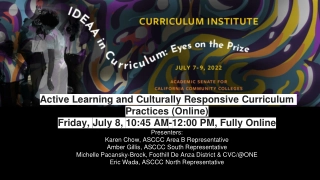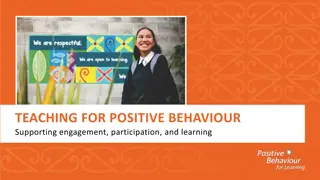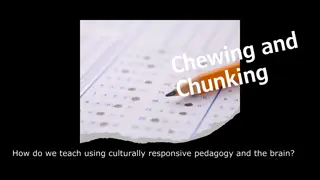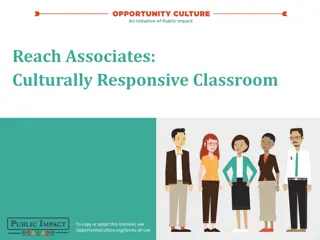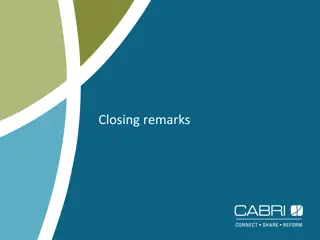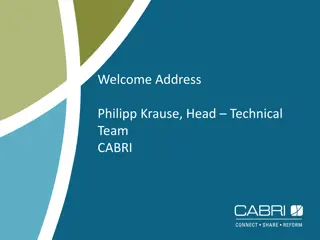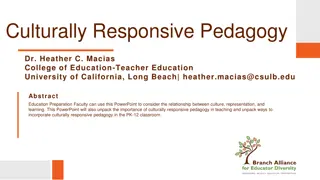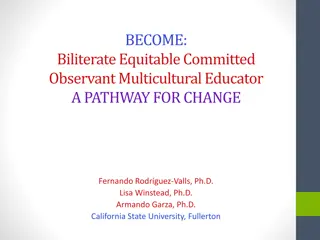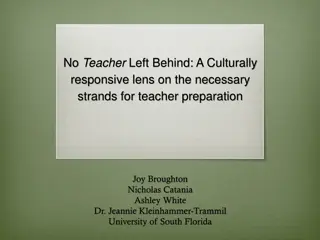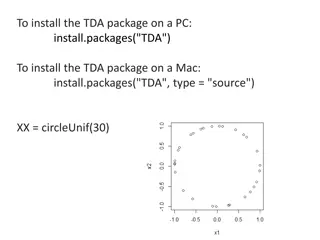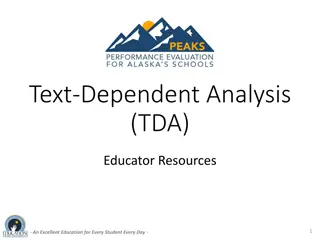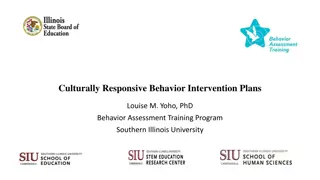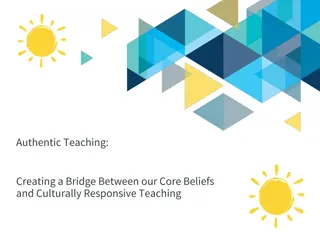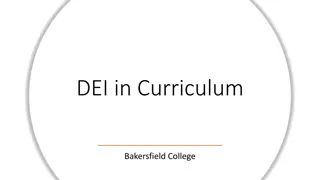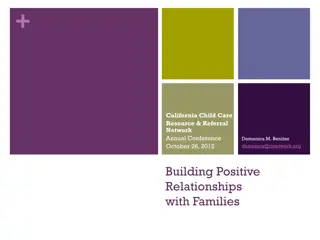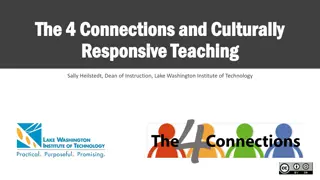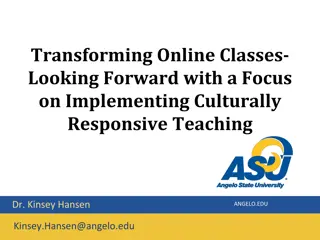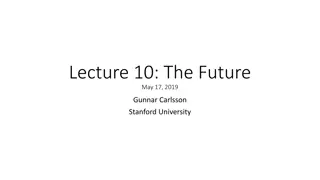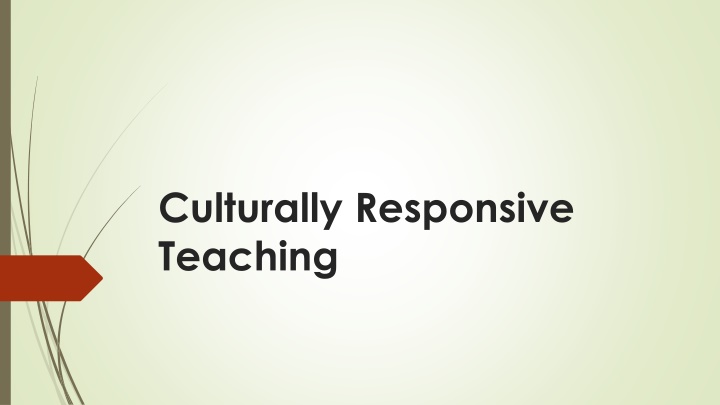
Culturally Responsive Teaching in Education
Culturally responsive teaching acknowledges and integrates students' cultural backgrounds, knowledge, and learning styles into the academic curriculum. It emphasizes the importance of recognizing and affirming cultural diversity in the classroom to enhance student engagement and achievement.
Download Presentation

Please find below an Image/Link to download the presentation.
The content on the website is provided AS IS for your information and personal use only. It may not be sold, licensed, or shared on other websites without obtaining consent from the author. If you encounter any issues during the download, it is possible that the publisher has removed the file from their server.
You are allowed to download the files provided on this website for personal or commercial use, subject to the condition that they are used lawfully. All files are the property of their respective owners.
The content on the website is provided AS IS for your information and personal use only. It may not be sold, licensed, or shared on other websites without obtaining consent from the author.
E N D
Presentation Transcript
Culturally Responsive Teaching
Panelists: Jared Gambrell, Teacher, Charleston County School District; Manuela Chaverra Zapata, Teacher, Dorchester District Two; Omar Valencia, Teacher Leader and Senior in CofC s Teacher Education Program Panel Moderator, Meta Van Sickle, Ph.D. College of Charleston
What is culturally responsive teaching? In 2000, Professor Geneva Gay wrote that culturally responsive teaching connects students cultural knowledge, prior experiences, and performance styles to academic knowledge and intellectual tools in ways that legitimize what students already know. By embracing the sociocultural realities and histories of students through what is taught and how, culturally responsive teachers negotiate classrooms cultures with their students that reflect the com-munities where students develop and grow. This is no small matter because it requires that teachers transcend their own cultural biases and preferences to establish and develop patterns for learning and communicating that engage and sustain student participation and achievement. --Elizabeth Kozleski, Equity Matters: In Learning, for Life. www.equityallianceatasu.org/sites/default/files/Website...
In reality, cultural responsiveness is more of a process than a strategy. It begins when a teacher recognizes the cultural capital and tools students of color bring to the classroom. She is then able to respond to students' use of these cultural learning tools positively by noticing, naming, and affirming when students use them in the service of learning. The most common cultural tools for processing information utilize the brain's memory systems -- music, repetition, metaphor, recitation, physical manipulation of content, and ritual. The teacher is "responsive" when she is able to mirror these ways of learning in her instruction, using similar strategies to scaffold learning. --Zaretta Hammond in Culturally Responsive Teaching and the Brain: Promoting Authentic Engagement and Rigor among Culturally and Linguistically Diverse Students, 2015
Self Description Who are you, what do you do? Share what you wish about your cultural and ethnic background. What makes you who you are? What makes your perspective different from other cultures? What makes understanding this perspective important? What do you wish others knew about your perspective? Strengths? Points of friction?
A Story from the Past Coming through school/college/grad school, can you think of an example or examples when you were honored and respected by your teachers? What stands out as you look back? How does this impact the way you (or will) teach? How do you let others know about your authentic self?
Why Does It Matter? How do we learn about the other so that we don t make negative assumptions? Why do answers to these questions matter?
Conclusion What does it all mean? How does anything said apply to you? How does what you heard impact your thinking your thinking as you progress through the workshops this week ?

